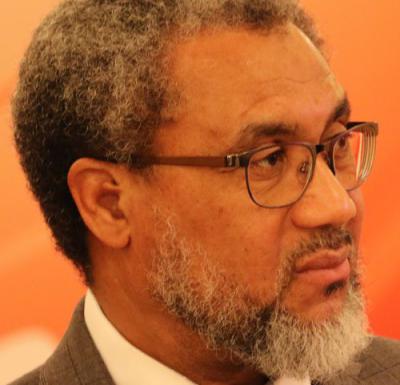Palestinian resistance against Israel’s brutal occupation is littered with many setbacks. The latest confrontation over Al-Aqsa Mosque was however a rare example of success. Israel’s fifty-year efforts to change the status quo in the Noble Sanctuary were dealt a major blow last week one that highlighted several important lessons for both the occupier and the occupied.
On this occasion the Israelis clearly went one step too far in their disregard for the religious sentiments of the Palestinian people and Muslims the world over. The decision by the Netanyahu government to close Al-Aqsa to Muslim worshippers after months of daily incursions by Jewish extremists had set alarm bells ringing that something very sinister was afoot.
All across the occupied Palestinian territories the reaction was decisive and uncompromising: there will be no division or sharing of Al-Aqsa Mosque. The matter of its ownership was never in doubt; it belongs to the Muslims and as far as the Palestinians are concerned they were never going to betray their sacred responsibility as its custodians.
This is the reality that the Israeli leadership ignored at their peril. In fact they overlooked the unifying potential of Al-Aqsa. Palestinians will differ on many things but if there is one issue that will unite them it is the centrality of Jerusalem and the Noble Sanctuary of Al-Aqsa in their lives.
The same in fact can be said about Muslims everywhere. Their political sectarian and other differences will always pale into insignificance when their religious heritage and rights are threatened. Hence the protests and outpouring of anger in cities from south-east Asia to Africa to Europe. Netanyahu and his government had unintentionally brought Muslims together around a single cause.
The upshot of all this is that Israel will never have its way when Palestinians and Muslims are united. In other words Israel will only appear to be strong when Palestinians and Muslims demonstrate weakness. Hence the efforts made by the Zionist state and its supporters to keep Muslims divided by sectarian and nationalistic in-fighting.
Another crucial lesson from the Aqsa standoff is the total insignificance of the official Arab leadership. Despite the gravity of the situation the Arab League’s response was pitiful to the point of irrelevance; it failed to meet even at a ministerial level to address the threats to Al-Aqsa. Tellingly two planned meetings were actually postponed. This failure was reminiscent of a similar farce back in 2009 in the wake of the Israeli military offensive against the Gaza Strip which led to the widespread destruction of property and more than 1000 civilians being killed. At the time a call for a special summit by the then Chair of the Arab League Qatar was rejected by eight of the 22-member organisation. Unsurprisingly Mahmoud Abbas was among those who did not attend citing his “inability” to be granted safe passage out of Ramallah as his excuse.
The Palestinian masses have learnt from bitter experience that it is a waste of time appealing to these regional leaders for sympathy let alone support. Eight years on from the Doha summit on Gaza the self-acclaimed “moderate” states have become even more aligned with Israel. Anyone who expected even a token declaration of support about Al-Aqsa was thus seriously deluded.
Moreover what transpired in Jerusalem in the past week confirmed the saying popularised by former US President John F. Kennedy that “Victory has a thousand fathers but defeat is an orphan.” No wonder the regional media is now awash with farcical claims by kings and presidents that they were responsible for the reopening of Al-Aqsa.
Notwithstanding the truth or hollowness of these claims there must be a sense of appreciation about what occurred. If Palestinians can unite to protect their religious heritage in Jerusalem surely they can do the same to end Israel’s political dominance military occupation and economic exploitation.
Indeed there are other indignities and abnormalities in the Palestinian reality that cry out for change. The inhuman blockade of the Gaza Strip stands out painfully. In the same manner that national unity converged with international solidarity to end the standoff in Al-Aqsa they must now combine to end the blockade of Gaza.
Finally there must be no doubt about the direction that the conflict in Palestine is taking. Israel’s colonial-settler claims to the Islamic sites especially Al-Aqsa are nothing new. The fact that the Netanyahu government has backed off for now is not the end of the story. Israeli extremists will sooner or later try again to change the status quo at the sacred site. The threats to Al-Aqsa will remain for as long as the occupation exists. The overarching lesson therefore is that for Al-Aqsa to be protected in the long-term Israel’s brutal military occupation must end.
– Dr. Daud Abdullah is MEMO’s Director.










